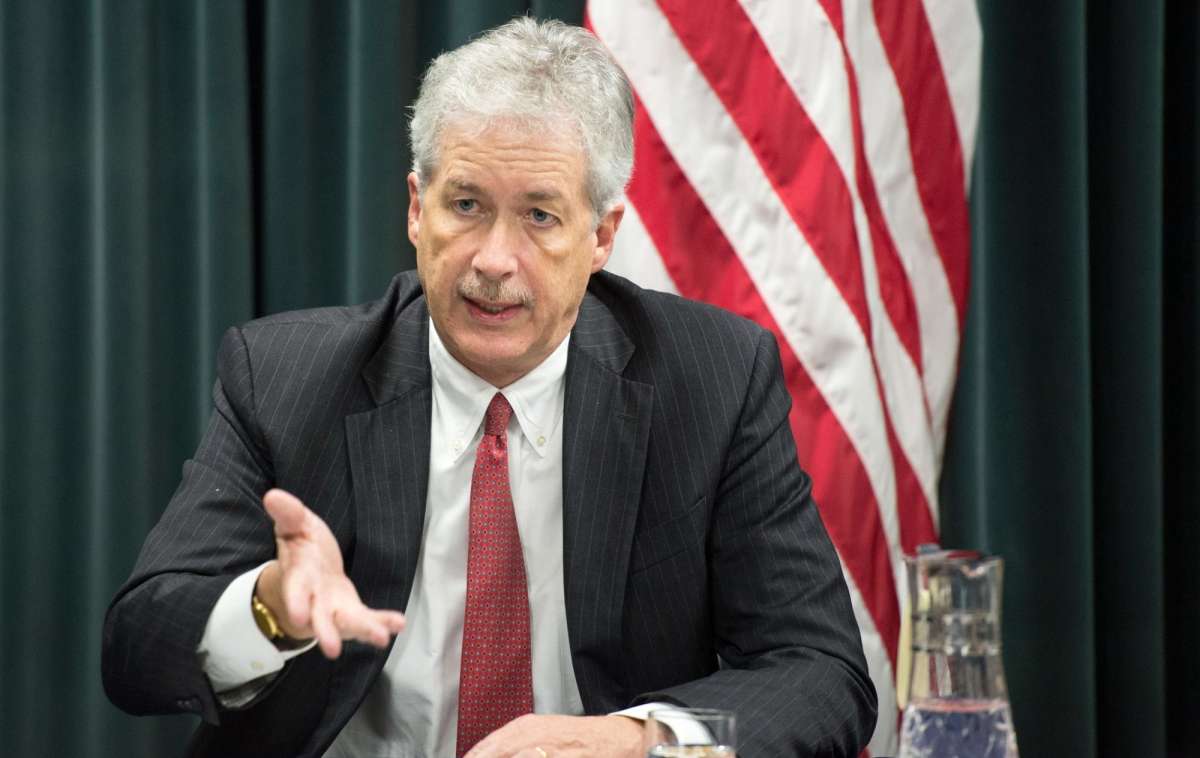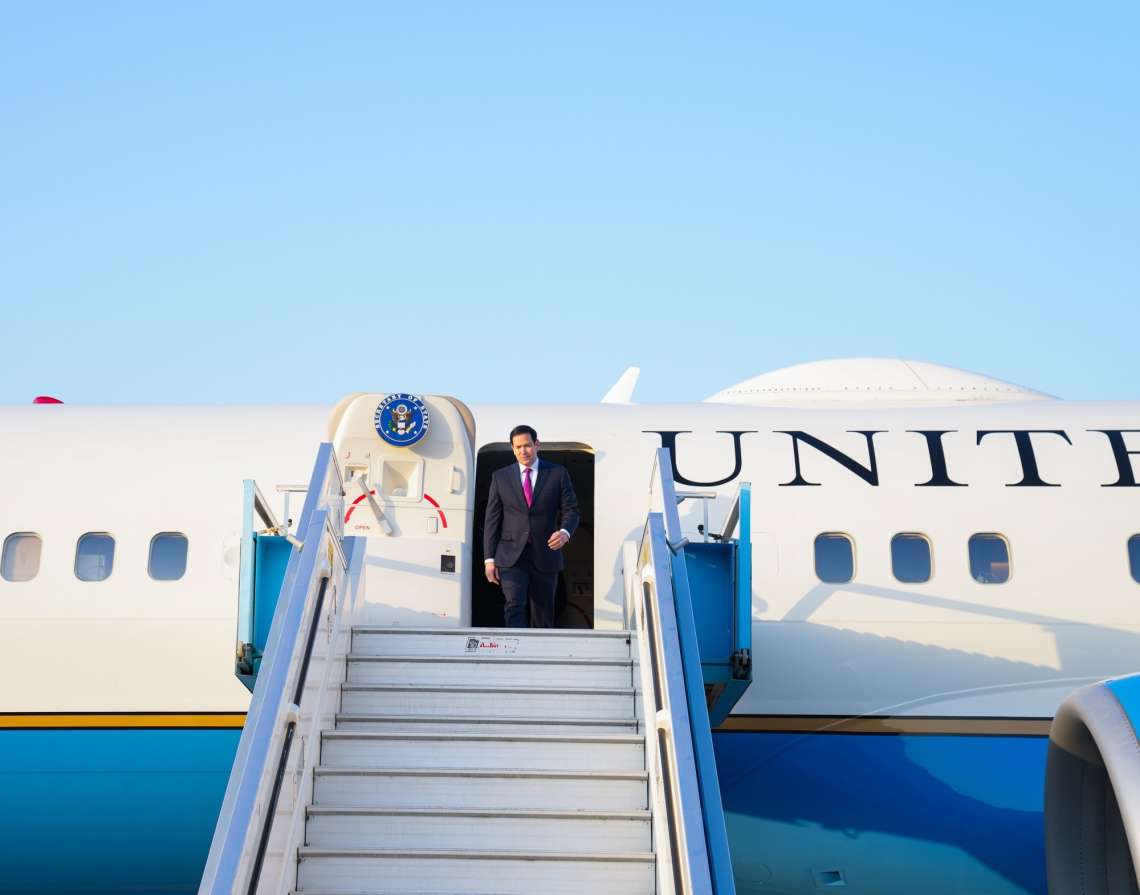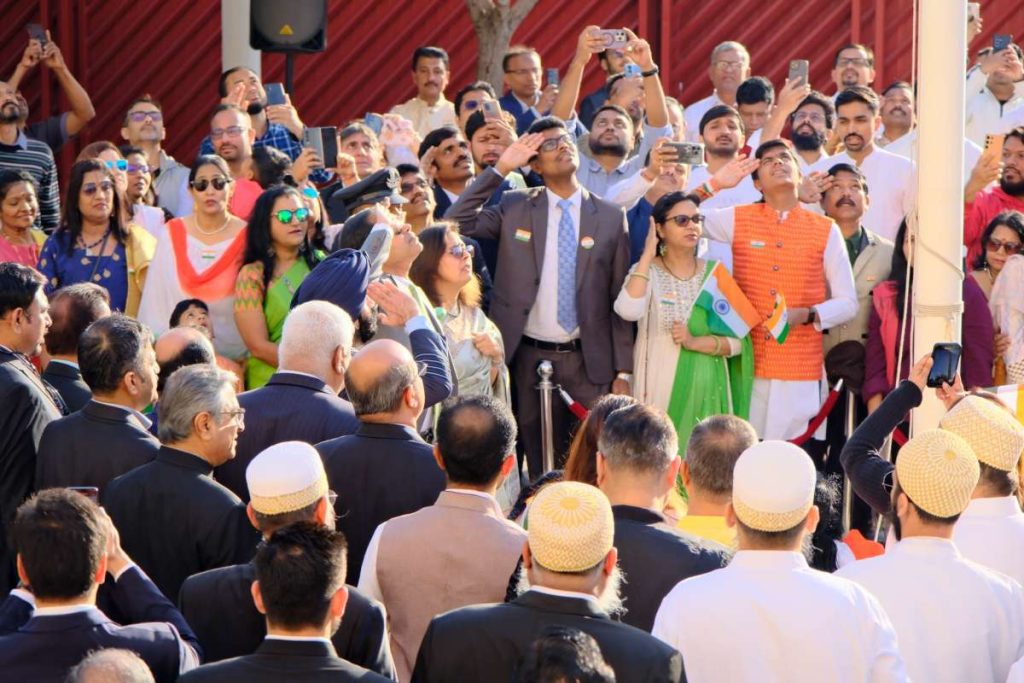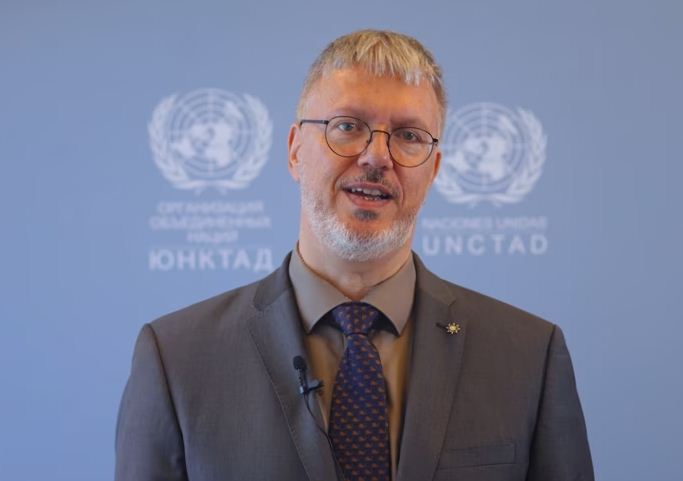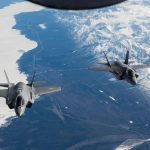Burns, valued by President Biden for his extensive Middle East contacts, plays a central role in the hostage crisis, given Israel’s reliance on Mossad Chief David Barnea….reports Asian Lite News
CIA Director William J Burns held undisclosed talks in Qatar with Israel’s Mossad chief and Qatar’s prime minister to facilitate an extensive deal between Israel and Hamas, The Washington Post reported.
Burns is pushing for the expansion of ongoing hostage negotiations to include men and military personnel. Additionally, he seeks a longer multiday pause in fighting, taking into consideration Israel’s demand for the release of at least 10 individuals for each day of ceasefire, The Washington Post reported, citing those familiar with the matter.
A crucial aspect of Burns’s efforts is the immediate release of American hostages held by Hamas, numbering eight or nine according to US officials. While the CIA declined to comment on Burns’s classified travel, a US official confirmed his trip to Doha for discussions on the Israel-Hamas conflict, focusing on hostage-related matters. “Director Burns travelled to Doha for meetings about the Israel-Hamas conflict including continued discussion on hostages,” the US official said.
Burns, valued by President Biden for his extensive Middle East contacts, plays a central role in the hostage crisis, given Israel’s reliance on Mossad Chief David Barnea.
“Barnea is the key Israeli person for these negotiations,” said Natan Sachs, an Israel scholar at the Brookings Institution, a think tank. “He’s the one authorised to speak on behalf of the prime minister.”
Far outside of Netanyahu’s circle of trust is Israel’s intelligence minister, Gila Gamliel, and foreign minister, Eli Cohen, observers say, making Burns’s meetings with his counterpart a focal point for dealmaking. “Secretary of State Antony Blinken would be the counterpart if the Israeli foreign minister held any sway in the Cabinet, but he does not,” Sachs said, as reported by The Washington Post.
The Burns-Barnea channel was utilised earlier this month during discussions in Qatar.
Following the meeting’s conclusion, the White House announced Israel’s initiation of four-hour pauses in northern Gaza to facilitate the evacuation of Palestinians–a move welcomed by the White House but falling short of the US request for multiday pauses.
Qatar, located in the gas-rich Persian Gulf peninsula, has been mediating talks between Israel and Hamas since the conflict’s onset.
US officials are advocating for an extended period without fighting to facilitate hostage releases and enable humanitarian aid to reach the enclave. Israeli officials have communicated their willingness to allow a maximum of 10 extra days before considering a resumption of military operations. Despite Prime Minister Benjamin Netanyahu’s commitment to dismantling Hamas, uncertainty remains about Israel’s willingness to exceed the 10-day limit amid efforts to release more hostages, The Washington Post reported.
Netanyahu, speaking over the weekend, vowed to continue fighting after the current phase of hostage negotiations. “We will return with full force to achieve our goals: the elimination of Hamas; ensuring that Gaza does not return to what it was,” he said.
The recent truce, the first pause since the conflict began on October 7, prompted the release of 51 Israeli hostages and 18 foreign nationals, with Israel releasing 150 Palestinian women and teenagers.
The US officials are advocating for an extended ceasefire to facilitate hostage releases and humanitarian aid delivery into Gaza. Israeli officials have indicated a willingness to allow a maximum of 10 extra days before potentially resuming military operations.
Concerns persist about the humanitarian situation in Gaza, with aid agencies working to bolster deliveries. Burns’s objective in Qatar includes exploring alternative formats or mechanisms to secure aid flow outside the hostage negotiations framework.
The main challenge lies in security and logistical issues, restricting aid truck capacity to no more than 200 trucks per day. One potential solution involves upgrading the Rafah border crossing between Gaza and Egypt with modern security equipment, The Washington Post reported. (ANI)

